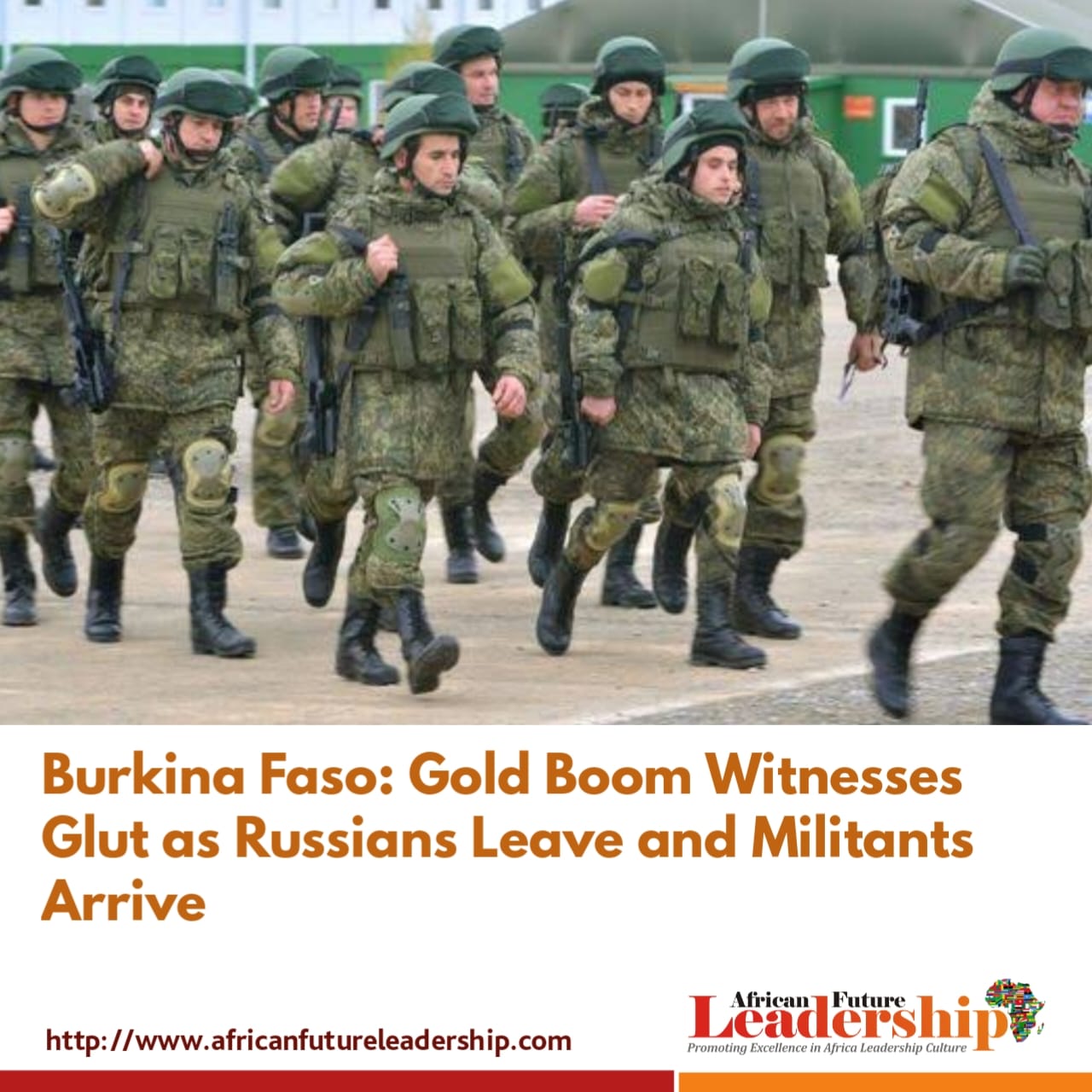By our Correspondent
Following recent conflicts of interest, Burkina Faso’s gold industry is set to decline, says the CEO of West African Resources. Boukary Diallo.
And he has attributed the downfall to militant attacks that have intensified this year as well as Russia’s Nordgold shutting the Taparko mine in April.
Before now, a gold mining boom in Burkina Faso over the last decade propelled Diallo from being a vendor on a market stall to running a meat business supplying a mine near Ouahigouya, his home town in the north of the country.
The truth now is, as the West African country loses territory to Islamist militants and lurches from coup to coup, threatening to turn the boom to bust, Diallo is concerned he will be unable to retain all of his 10 employees.
Diallo, 42, says, “Things are getting tight. If the mine doesn’t start up again in December, I will have to let some people go.”
Specifically, Karma mine, which Diallo supplies, was closed in June after a militant attack that left one worker and one soldier dead.
READ MORE: Big Eyes Coin $250 Giveaway Holding
Intrinsically, acquired by Burkina-based firm Néré Mining from Endeavour Mining in March, Karma is one of at least four gold mines that halted production this year because of security risks.
Also, Russia’s Nordgold in April stopped mining at Taparko, saying the lives of its staff were in danger. The economy is also at risk.
Main export
In the meantime, gold is Burkina Faso’s main export, accounting for 37% of total exports in 2020, and mining is a leading source of jobs.
And for each person directly employed by a mine, there are three or four contractor and service workers, the national association of mining contractors estimates.
Thus, Diallo’s business, which had revenues of 100 million CFA francs ($151,399) in 2019, has been making barely 4 million CFA francs a month since the Karma mine shut, he said. The conflict has also stoked inflation.
Certainly, the decline in Diallo’s fortunes is reflected at the national level.
This is such that st current rates, Burkina Faso is set to produce 13% less gold this year than in 2021, in part because of mine closures, government statistics show.
Notably, the start of production at Orezone’s Bomboré gold mine in late September was an exception to the trend.
But production sinks
in the nine months to end-September – the most recent period for which data is available – the country produced 43.651 tonnes of gold, down from 50.126 tonnes over the same period last year.
It was envisioned as Richard Hyde, executive chairman and CEO of West African Resources.says, “We see the gold industry declining in Burkina over the next five to 10 years.”
Meanwhile, security risks mean little exploration is happening, he added, saying West African Resources was one of the few companies to be exploring and planning a new mine.
So, the Burkina Faso mines ministry did not respond to questions.
READ MORE: Nigeria’s Exclusion from Glencore Settlement Sparks
Moreover, this year is on track to be the deadliest for the country since the Sahel crisis began more than a decade ago, according to the Armed Conflict Location and Event Data Project (ACLED).
Additionally, the Al Qaeda-affiliated Jama’at Nusrat al-Islam wal-Muslimin (JNIM) carried out more than 400 attacks across 10 of Burkina Faso’s 13 regions in the first half of the year.
Conflicts and political crises
Again, the conflict has also triggered political crises in the country, with two military coups this year.
However, despite the instability, miners have managed to get people and supplies in and out of the country, said Sean Fieler, chief investment officer at Equinox Partners Investment Management LLC, who visited mines in Burkina Faso in July.
But he said, “two coups within 12 months is not a good thing, I don’t think anyone would argue otherwise”.
In the interim, Equinox Partners, through its funds, holds a 4.4% stake in West African Resources, a 0.2% stake in Endeavour Mining, and also invests in Orezone.
Thus, he said, we see the gold industry declining in Burkina over the next five to 10 years.
Relatively, Sebastien de Montessus, CEO of Endeavour, Burkina Faso’s biggest gold producer, said: “We remain committed to the country and ensuring our presence continues to provide economic benefits to our employees, contractors, suppliers and host communities”.
Overall, in Burkina, 20% of the mining royalties are collected by the state and 1% of mining company revenues go into a state-managed Local Development Mining Fund (FMDL) that finances development projects in mining communities and elsewhere.
Matter of factly, in the first half of 2022, contributions to the fund fell by 9% from the same period last year, Mines ministry reports show.
This means, “When mines close, the whole country loses out,” said Julien Baudrand, senior vice president for sustainability at Fortuna Silver, which runs the Yaramoko gold mine in Burkina Faso. ($1 = 636.0000 CFA francs).




